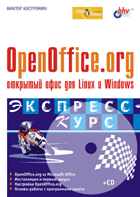Библиотека сайта rus-linux.net
The book is available and called simply "Understanding The Linux Virtual Memory Manager". There is a lot of additional material in the book that is not available here, including details on later 2.4 kernels, introductions to 2.6, a whole new chapter on the shared memory filesystem, coverage of TLB management, a lot more code commentary, countless other additions and clarifications and a CD with lots of cool stuff on it. This material (although now dated and lacking in comparison to the book) will remain available although I obviously encourge you to buy the book from your favourite book store :-) . As the book is under the Bruce Perens Open Book Series, it will be available 90 days after appearing on the book shelves which means it is not available right now. When it is available, it will be downloadable from http://www.phptr.com/perens so check there for more information.
To be fully clear, this webpage is not the actual book.
Next: 6.2 Initialising the Boot Up: 6. Boot Memory Allocator Previous: 6. Boot Memory Allocator Contents Index
6.1 Representing the Boot Map
A bootmem_data struct exists for each node of memory
in the system. It contains the information needed for the boot memory
allocator to allocate memory for a node such as the bitmap representing
allocated pages and where the memory is located. It is declared as follows
in ![]()
linux/bootmem.h![]() :
:
25 typedef struct bootmem_data {
26 unsigned long node_boot_start;
27 unsigned long node_low_pfn;
28 void *node_bootmem_map;
29 unsigned long last_offset;
30 unsigned long last_pos;
31 } bootmem_data_t;
The fields of this struct are as follows:
- node_boot_start This is the starting physical address of the
represented block;
- node_low_pfn This is the end physical address, in other words,
the end of the
ZONE_ NORMALthis node represents; - node_bootmem_map This is the location of the bitmap representing
allocated or free pages with each bit;
- last_offset This is the offset within the the page of the end of
the last allocation. If 0, the page used is full;
- last_pos This is the the PFN of the page used with the last allocation.
Using this with the
last_offsetfield, a test can be made to see if allocations can be merged with the page used for the last allocation rather than using up a full new page.
Next: 6.2 Initialising the Boot Up: 6. Boot Memory Allocator Previous: 6. Boot Memory Allocator Contents Index Mel 2004-02-15






